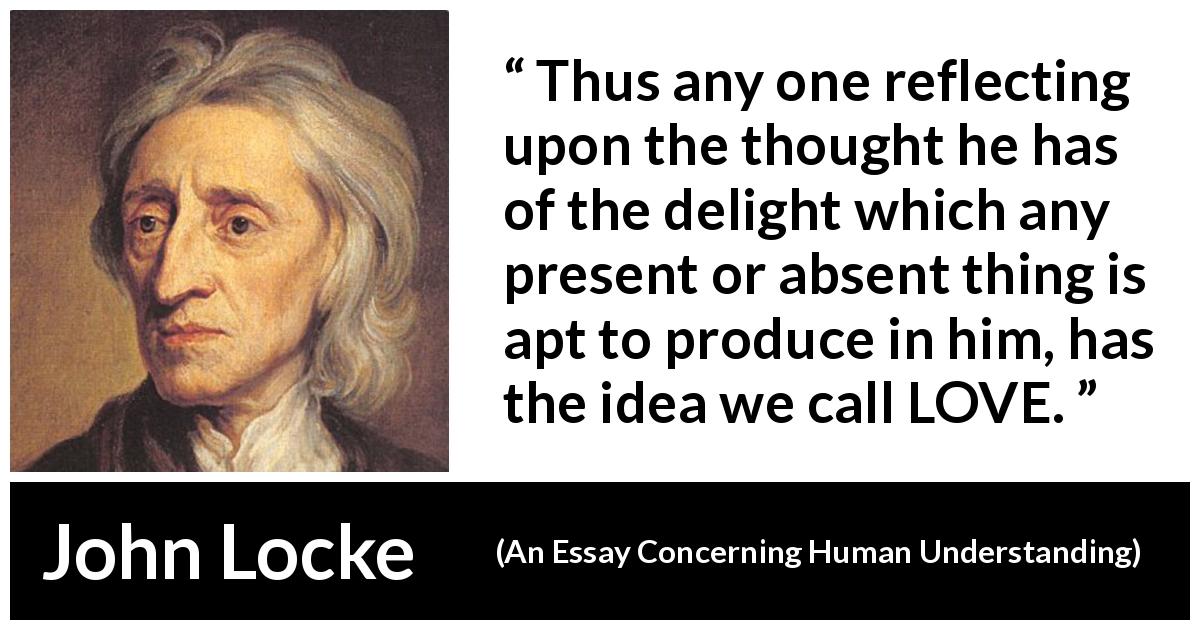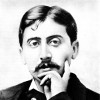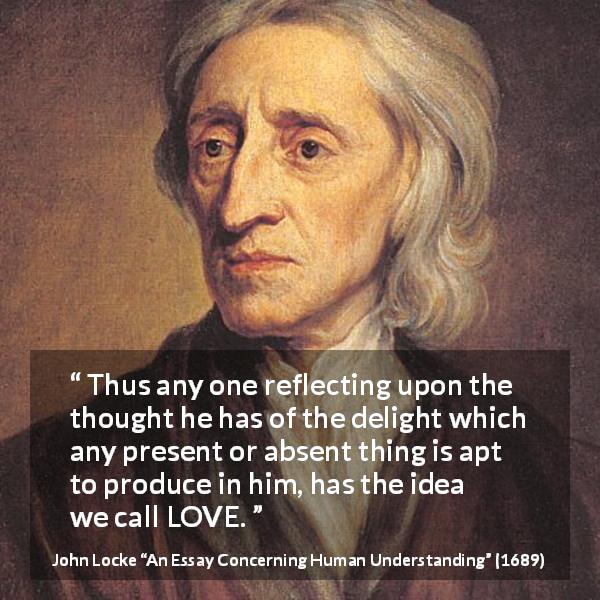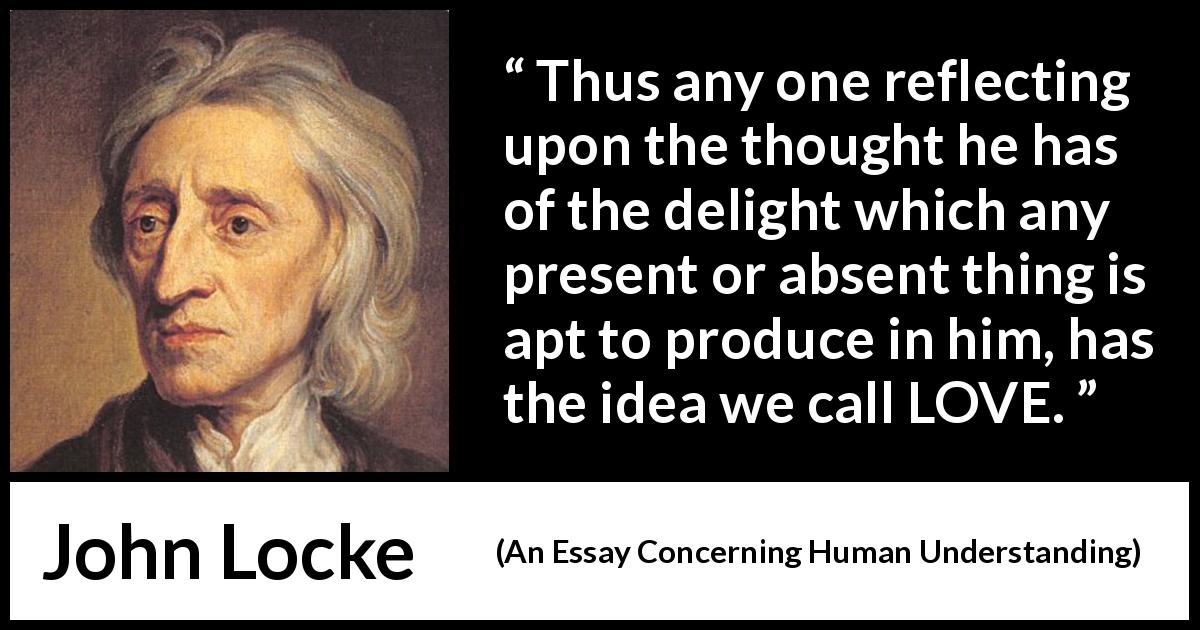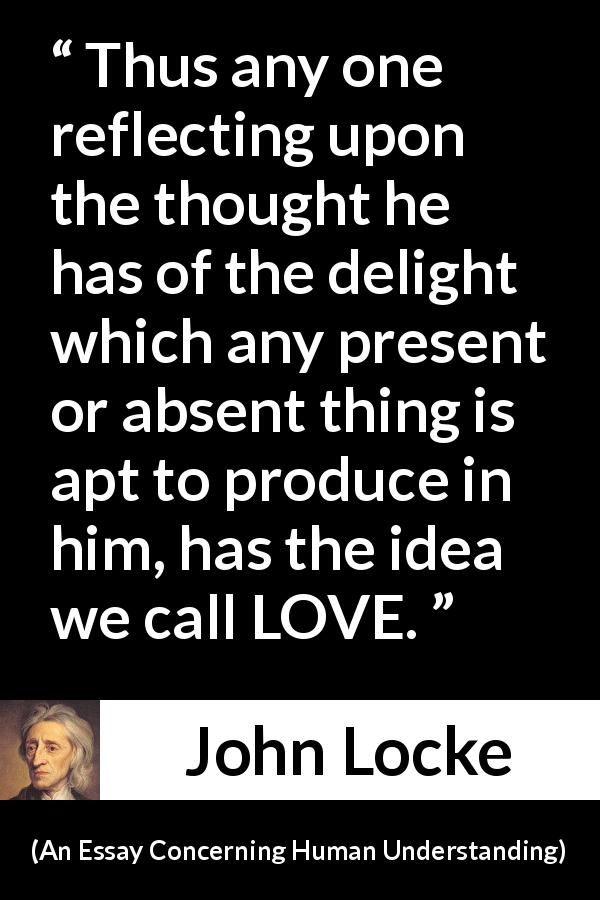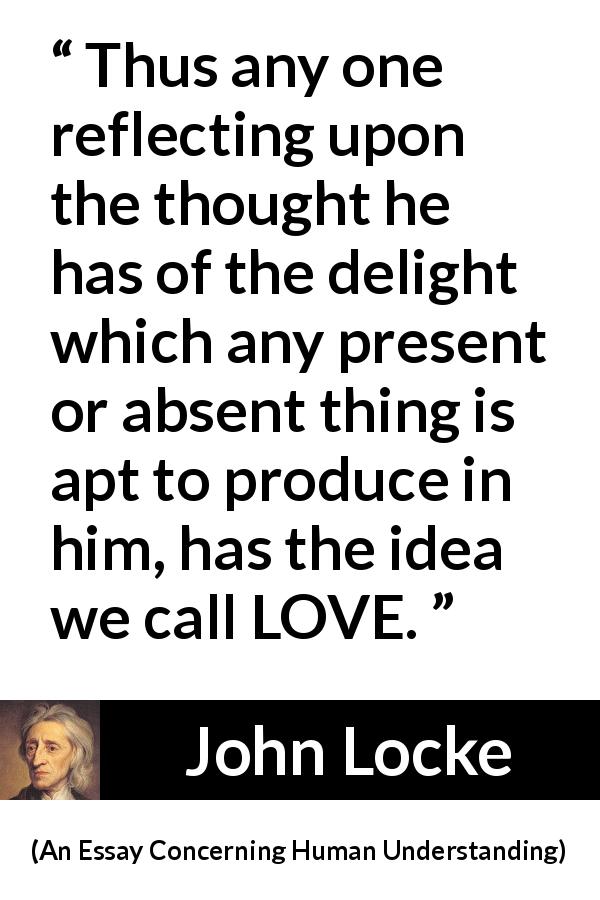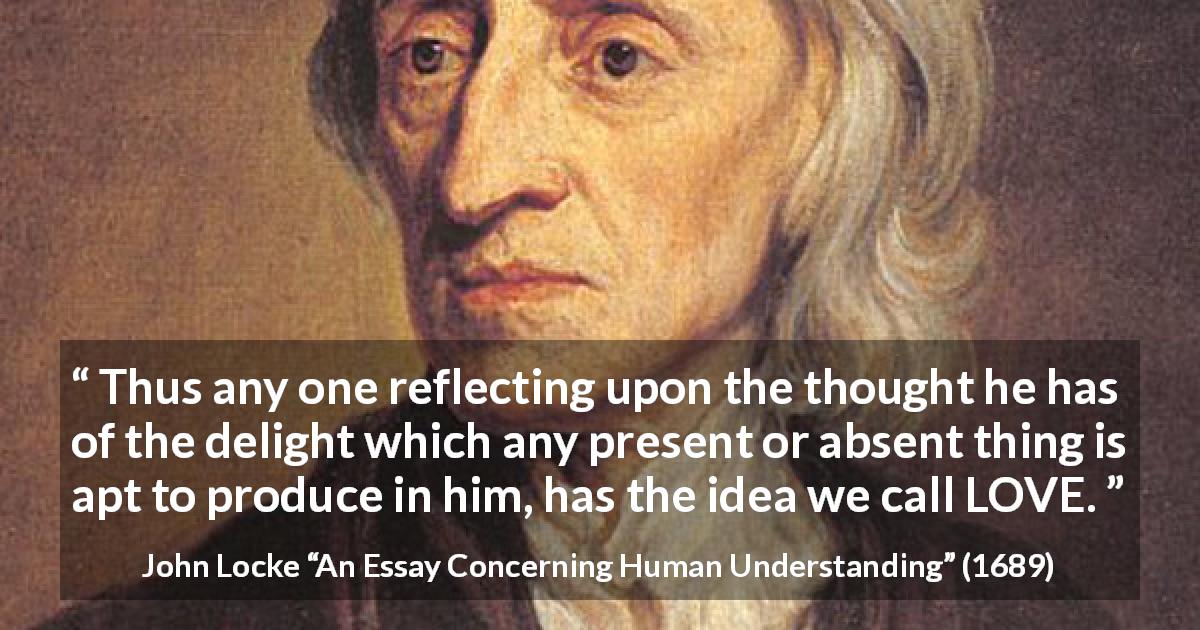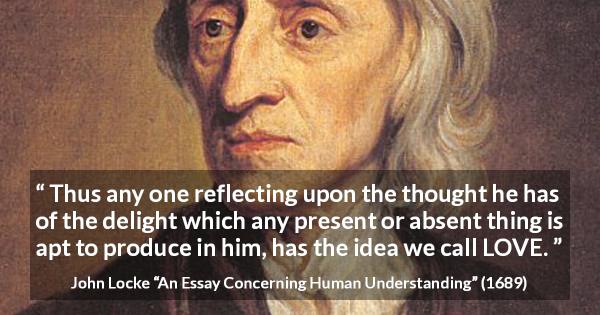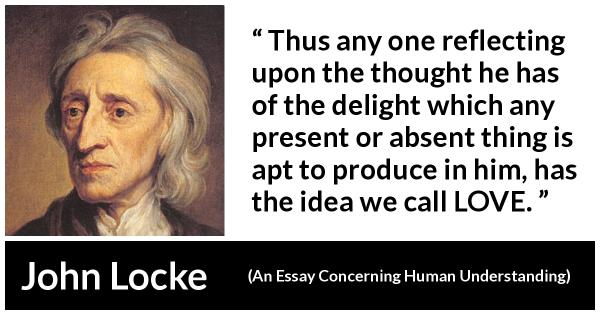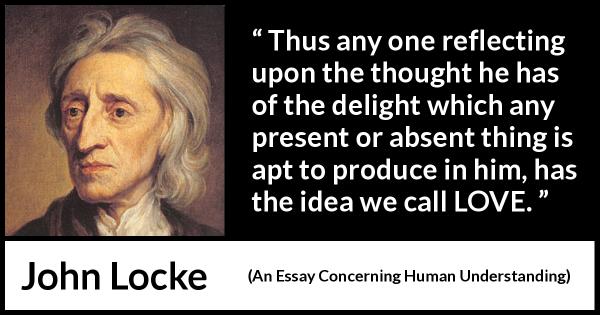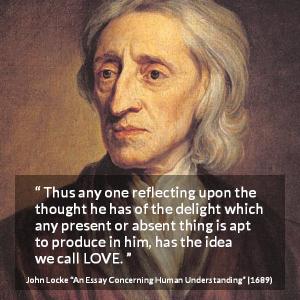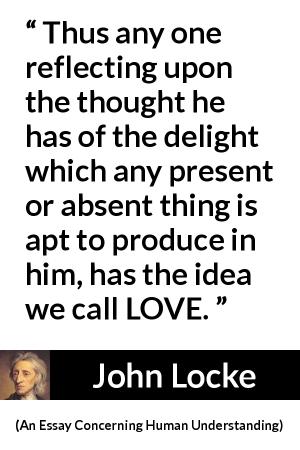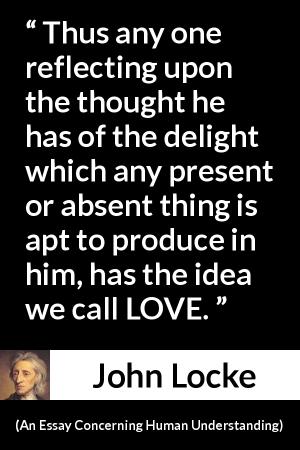“ Thus any one reflecting upon the thought he has of the delight which any present or absent thing is apt to produce in him, has the idea we call LOVE. ”
John Locke, An Essay Concerning Human Understanding (1689). copy citation
| Author | John Locke |
|---|---|
| Source | An Essay Concerning Human Understanding |
| Topic | love thought delight |
| Date | 1689 |
| Language | English |
| Reference | |
| Note | |
| Weblink | http://www.gutenberg.org/files/10615/10615-h/10615-h.htm |
Context
“And if we reflect on ourselves, and observe how these, under various considerations, operate in us; what modifications or tempers of mind, what internal sensations (if I may so call them) they produce in us we may thence form to ourselves the ideas of our passions.
4. Love.
Thus any one reflecting upon the thought he has of the delight which any present or absent thing is apt to produce in him, has the idea we call LOVE. For when a man declares in autumn when he is eating them, or in spring when there are none, that he loves grapes, it is no more but that the taste of grapes delights him: let an alteration of health or constitution destroy the delight of their taste, and he then can be said to love grapes no longer.” source
4. Love.
Thus any one reflecting upon the thought he has of the delight which any present or absent thing is apt to produce in him, has the idea we call LOVE. For when a man declares in autumn when he is eating them, or in spring when there are none, that he loves grapes, it is no more but that the taste of grapes delights him: let an alteration of health or constitution destroy the delight of their taste, and he then can be said to love grapes no longer.” source
